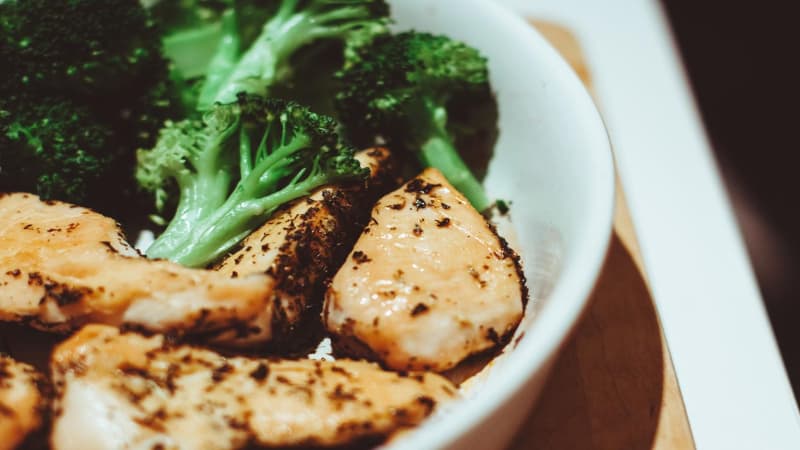Is snack pack pudding healthy? It’s a question that has no easy answer. On the one hand, puddings are generally considered a fairly healthy snack option. They’re low in calories and generally contain decent amounts of protein, fiber, and other nutrients. But on the other hand, many puddings also contain high levels of sugar and unhealthy fats. So is snack pack pudding healthy? The answer depends on the specific product you’re looking at. In this blog post, we’ll take a look at the health benefits (or lack thereof) of snack pack pudding and help you decide whether or not it’s a good choice.
Is Snack Pack Pudding Healthy?
What are the Nutritional Benefits of Snack Pudding?
When it comes to snack foods, pudding is often overlooked in favor of healthier options like fruits and vegetables. However, pudding can be a healthy and delicious snack option, providing several essential nutrients.
Pudding is made from milk and eggs, two food groups that are excellent protein sources. Protein is an essential nutrient for our bodies, helping to build and repair tissues and produce enzymes and hormones.
In addition to protein, pudding also provides calcium, another essential nutrient. Calcium helps keep our bones strong and healthy and can also help lower blood pressure.

Pudding is also a good source of carbohydrates, which provide energy for our bodies. And because pudding is made with milk, it also contains some vitamin D, which is vital for strong bones and teeth.
What are the Health Drawbacks of Snack Pudding?
Pudding is a popular dessert worldwide, but it can also be a tasty snack. While pudding may seem like a harmless treat, some health drawbacks are associated with it.
One of the biggest health concerns with pudding is that it is often high in sugar. This can lead to weight gain and increased risk for diabetes and other chronic conditions. Sugar can also cause cavities and other dental problems.
Pudding is also typically high in calories, contributing to weight gain. If you are watching your weight or trying to lose weight, you should avoid eating pudding as a snack.
In addition to the sugar and calorie content, pudding also tends to be high in saturated fat. This type of fat can raise your cholesterol levels and increase your risk for heart disease. If you have high cholesterol or a history of heart disease, you should avoid eating pudding.
Lastly, pudding is often made with artificial flavors and colors. These additives can be harmful to your health and may cause allergic reactions in some people. If you are concerned about the ingredients in the pudding, you should look for brands that use natural ingredients.
If you enjoy eating pudding, there are some ways to make it healthier. You can make your pudding at home using healthy ingredients like skim milk, fruit, and yogurt. You can also look for brands that offer low-sugar or sugar-free options.
How Often is it Healthy to Snack on Snack Pudding?
It’s no secret that snacking can be good for you. In fact, snacking is a great way to help control your hunger and avoid overeating at meals. But when it comes to snacking, not all foods are created equal. Some snacks are healthier than others, and some are better for certain people than others. So how often is it healthy to snack on snack pudding?
Snacking on snack pudding is perfectly healthy for most people and can even be beneficial. Pudding is packed with nutrients like protein, fiber, and healthy fats, which can help keep you full and satisfied between meals. Plus, pudding is a great energy source to help you power through your afternoon slump.
However, there are a few things to keep in mind if you plan to snack on pudding regularly. First, be sure to choose a low sugar and calorie pudding. There are many brands of snack pudding that are made with healthy ingredients but are still high in sugar and calories. Second, limit yourself to one or two servings of pudding per day. And finally, be sure to pair your pudding with a healthy side dish or another snack that contains protein or fiber to help balance out the nutrients.
So go ahead and enjoy a delicious snack pudding when the mood strikes. Remember to keep an eye on your portion size and make sure you’re pairing it with other healthy foods.
Are There Healthier Alternatives to Snack Pudding?
If you’re a fan of snack pudding, you might wonder if there are any healthier alternatives. The good news is that there are plenty of options to choose from!
Here are a few ideas to get you started:
Greek Yogurt
Greek yogurt is a great alternative to traditional pudding because it’s packed with protein and probiotics. Plus, it’s lower in sugar than most puddings on the market.
Chia Pudding
Chia pudding is another great option for those looking for a healthier alternative to snack pudding. This pudding is full of fiber and omega-3 fatty acids, which are great for your health.
Fruit and Veggie Puddings
If you’re looking for a pudding packed with nutrients, you might want to try a fruit and veggie pudding. These puddings are made with real fruits and vegetables, so you can be sure you’re getting plenty of vitamins and minerals.
Protein Pudding
Protein pudding is a great option for those looking for a filling snack that’s also high in protein. This type of pudding is usually made with whey protein powder, so it’s a great way to get an extra dose of protein after a workout.
Avocado Pudding
Avocado pudding is another great alternative to traditional pudding because it’s full of healthy fats. Plus, it has a creamy texture that’s similar to pudding.
No matter what type of pudding you’re looking for, there’s sure to be a healthier alternative for you!
Our Final Thoughts
So, there you have it! Is snack pack pudding healthy? Well, it’s a little complicated. While snack puddings are a delicious snack, they are not the perfect option when looking for healthy snacks. However, this does not mean you can’t enjoy snack puddings. Everything in moderation will do you no harm and satisfy you, allowing you to focus on your goals.















